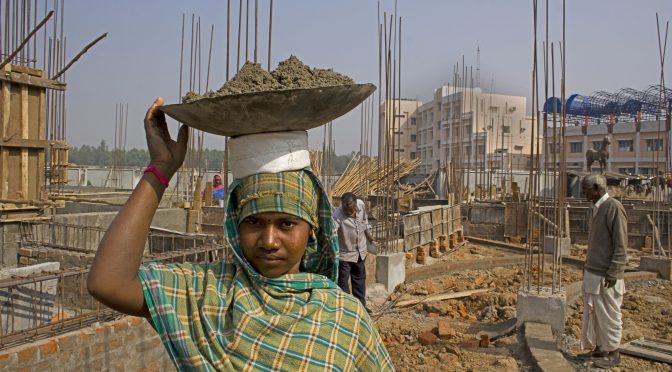A weekly round up of articles about employment, the labour market, skills training and workforce development. This week’s round up is drawn from The Daily Star. Here is the news for the week ending 2nd June 2016.
This week in the Bangladesh English Press…
…Government invests in ICT training to target those looking for self employment. And a midwives training program is expanded to reduce child and maternal mortality. Global Slavery Index cites Bangladesh response to modern slavery. Child labor continues in tobacco production in poor rural areas. Research shows further opportunity for RMG sector to gain global competitive advantage.
Training for self employment
The Government will invest in ICT training for 10,000 entrepreneurs over the next three years. These entrepreneurs will create their own work in the growing e-commerce sector. And many will be in rural areas. There is a growing market for ICT jobs, where digitisation has opened up new possibilities for businesses large and small. The project will spend TK 64 million over the next three years.
There is a proposal to offer loans to trained midwives to set up their own clinics
The government plans to increase the number of trained midwives to reduce maternal and child mortality rates. Since 2012, 661 trainees graduated from the Bangladesh Nursing and Midwifery Council, a joint program by the government and BRAC . The government will quickly increase the number of midwives to 4,800 through a one year training program.
The number of midwives still remains low compared to the 20,000 needed to provide full coverage in hard to reach areas in Bangladesh. There is a proposal to offer loans to trained midwives to set up their own clinics in hard to reach areas. So maternal and child mortality rate will be further reduced in these areas.
Government response robust to modern slavery
Bangladesh is ranked fourth in the region in terms of its response to modern slavery. Its relatively strong standing is based on commitments to end child marriage. And also on improvements in working conditions in garments factory.
Poverty, natural disasters and corruption make Bangladesh particularly vulnerable to modern slavery
The Global Slavery Index suggests over one million people, mostly men, in Bangladesh are trapped in exploitative jobs. Exploitation is found in manufacturing, manual labor, construction, drug production and farming.
Poverty, natural disasters and corruption make Bangladesh particularly vulnerable to modern slavery. The 2016 reportssays the country is the eleventh most vulnerable country to modern slavery.
Child labour in tobacco industry
Three thousand children work in the tobacco industry in Lalmonirhaat earning around TK60 to TK70 a day.
the next generation will not be caught in the same trap
The entire family is often involved in making local cigarettes known as bidis. Many suffers from aliments related to tobacco production. The outlook is poor. Farmers see no alternative to this profitable crop.
A strong safety net will let these farmers send their children to school so the next generation will not be caught in the same trap. And farmers have to incentivised to cultivate other crops.
Research on RMG sector for further competitive advantage
RMG in Bangladesh accounts for 85% of the country’s manufacturing sector and employs 4 million people. To take advantage of the predicted surge in global demand for RMG Bangladesh must address compliance, infrastructure and power.
New research by a team of Bangladesh economist suggests creating a specialised zone for RMG will increase productivity, reduce production costs and ensure greater compliance. These measure will eventually give the country a global competitive advantage..
Unemployed nurses on the street
Unemployed nurses took to the street to protest against a recent Public Service Commission notice. The notice prohibits them from sitting for an exam as part of the recruitment of nearly 4,000 new nurses for public hospitals. The new positions are available to those under 36 and holding a Bachelor of Science and Diploma in Nursing.
And thats the news from the Daily Star for the week ending 2nd June.

One reply on “Forced Labour Response”
Tahmina, thanks for your post. You’ve really covered a wide range of labour issues and initiatives in Bangladesh.
But one thing I don’t really get is the part about the midwives.
From what I can understand the government is thinking of providing loans to midwives to set up their own clinics. So this is a way of privatising a health service, isn’t it?
I know that that traditionally there have always been community midwives in Bangladesh. But the idea of professionalising midwifery, raising standards of practice to meet development goals, and at the same time burdening midwives with the risks of running a profitable, professional and regulated service seems unrealistic.
Isn’t there a more robust way of addressing the issue?